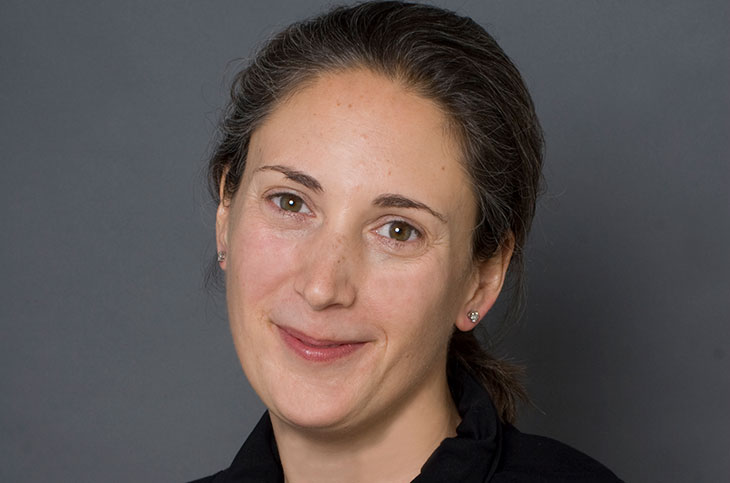Laura Callanan

The principal’s reading of passages from founder John Phillips’ Deed of Gift is a longstanding tradition at the Academy’s annual Opening Assembly. As a student hearing that historical text, Laura Callanan ’83 was struck by one key idea in particular: “Goodness without knowledge is weak and feeble, yet knowledge without goodness is dangerous.” More than 30 years later, this phrase still resonates, Callanan says, and the work she’s engaged in today seems like an ideal opportunity to fulfill the responsibilities she perceived in Phillips’ admonition. Last November, Callanan was appointed senior deputy chairman of the federal arts agency, the National Endowment for the Arts, and she couldn’t be more thrilled: “I spent all my time at Exeter in the Fisher Theater — acting, directing, doing tech. You never know what the future holds.”
“I’ve always identified with the arts — first at Exeter, where I was very active in the Dramat, then at Barnard, where I majored in theater, and after college working at Lincoln Center Theater and American Ballet Theatre,” Callanan says. “I was on an arts path. Then I took a 30-year detour into philanthropy and social innovation, focusing on broader social-impact themes working at The Rockefeller Foundation, the United Nations Development Programme and McKinsey & Company. Now I have the chance to bring all these threads together.”
Callanan traces the seeds of her new role at the NEA back to the Academy’s standing graduation requirement for the History 32 (now known as History 333) paper. “When it came time to write my paper, I looked for a topic that linked American history to the theater,” she recalls. Donald P. Schultz, director of the Fisher Theater for many years, suggested she explore the Federal Theatre Project (FTP), a branch of the Works Progress Administration founded in 1935 to employ out-of-work actors, stagehands, directors and the like during the Great Depression.
It was learning about the FTP that planted the understanding that the arts can be a powerful tool for effecting societal change, and over the past two years, this topic has been Callanan’s focus. “Artists are essential to every conversation about social innovation,” she asserts. “Social innovators searching for creativity need to extend their conversations to include artists, many of whom are addressing social topics as diverse as climate change and the criminal justice system. Likewise, artists who choose to work with these themes must step forward and learn to speak to social investors and entrepreneurs in a way they understand.”
One of the biggest barriers between artists and other entrepreneurs is language, Callanan explains: “The terms and concepts that artists are accustomed to discussing with curators and collectors don’t resonate in an entrepreneurial context. Similarly, if social innovators want to communicate with artists, they face a learning curve. My goal is to bring social innovators and artists together. Having worked with both of these communities, I see the similarities and would like to think I can be a bridge between these worlds.”
A conversation five years ago with her friend James Houghton, founding artistic director of Signature Theatre in New York, served as the initial spark for Callanan. “Listening to his plans to open a new three-theater complex, create a community green in the middle of Manhattan, triple the theater’s programming, and keep every ticket accessible at a price of $25, I said, ‘You’re a social entrepreneur, but no one calls you that because you work in the arts. And you don’t call yourself that because you work in the arts, but that’s what you are.’” This started Callanan down a path of researching, thinking and writing about artists as social entrepreneurs.
“Now, as the NEA’s senior deputy chairman, I have a national platform to spotlight innovation, entrepreneurship and the arts, which is absolutely incredible,” Callanan says. “The NEA kicks off its 50th-anniversary celebration in September, and we’ve got lots of exciting initiatives planned, so stay tuned!”
By Lori Ferguson